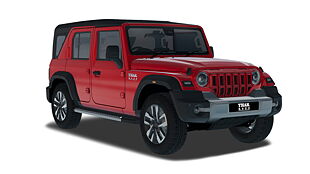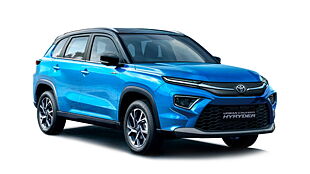Introduction

India loves SUVs and that is evident from the growing demand for this segment in the country. Even something as utilitarian as the Mahindra Bolero has been a forerunner since the time it was first launched in August 2000. Based on the Armada Grand, the Mahindra Bolero was a pure charmer back then. And it was not just the looks. The Bolero was well-footed as well, be it on the tarmac or a dirt path. Mahindra being a popular choice only in the rural market back then, the Bolero went on to generate interest even among urban buyers. Moreover, its reliability and simple mechanicals instantly won hearts. Interestingly enough, the Bolero was also the first car from Mahindra to get an independent front suspension. Over the period of 18 years, the Mahindra Bolero has received two updates until now. Here below are the key highlights for the Bolero.
First generation
On 4 August 2000, Mahindra introduced the first generation Bolero in India at Rs 4.98 lakhs (ex-showroom, Mumbai) (Yes, inflation has hit us hard!). Powered by a 2.5-litre Peugeot diesel engine, it generated 75bhp of power. Launched as a replacement to the Armada Grand, the Bolero defined the SUV concept in India and was an instant hit owing to its stunning looks and planted drive. Riding high on its success, on 24 March 2004, the Indian utility vehicle manufacturer introduced the open top version of the vehicle called the Invader, which also doubled up as a replacement for the Classic. By the end of 2004, the company had already sold over 8,800 units, which is by far the best for an SUV of the yesteryears in India.
Looks, power, drivability and an open top option are what kick-started the Bolero’s journey to claim the top position in the SUV segment in India in 2005 with an astonishing 20 per cent of the market share! In terms of total numbers, the company had sold more than 24,800 units by 2005.
First Update
In an effort to further strengthen its position in the Indian market, Mahindra introduced the first update for the Bolero on 2 March 2007. At that time, the SUV received fresh cosmetic upgrades in the form of tweaked bumpers, redesigned headlamps and a revised tail lamp cluster. It also received vinyl graphics on the bonnet and the doors for freshness. In October 2008, the Bolero received the most important update in the form of the Micro-Hybrid technology which switches the engine off when not required, thereby saving fuel. The 2.5-litre TDi engine then produced 63bhp of power and 180Nm of torque. The engine continued to be mated to a five-speed manual transmission.
In 2009, the company introduced the Bolero VLX (aka Storm) with the CRDe technology, which is indeed one of the most powerful Boleros till date. The 2.49L Common Rail Diesel Engine (CRDe) produced 97bhp of power and was tuned for a superior pickup. It also received the superior NGT 530R transmission and an upgraded front suspension for better handling on a tough terrain. Interestingly, it also received the Voice Assist System which makes the drive safer through an audio alert which warns the driver in case the door is left open or a seat belt is unfastened. Further elevating its sports quotient, the vehicle received stunning body graphics, premium dual-tone upholstery and a leather wrapped steering wheel. In the same period, Mahindra had also introduced the Bolero Special Edition model in two exclusive colours - Mist Silver and Golden Sahara Beige. It also got the European leather upholstery with premium black lining and CD-MP3 player. The VLX was however discontinued in 2011, probably due to the changing emission norms in the country.
To satisfy the strong demand from the rural market, the company also introduced the Bolero XL in the country which offered a nine-seat layout. This was quite popular among taxi operators as it allowed them to take in extra passengers as well as luggage effortlessly.
Second Update
In 2011, Mahindra introduced the third generation model with a fresh round of cosmetic and feature upgrades. The new model came with fresh muscular bumpers and a signature front mesh grille. Under the hood, it was powered by a further refined m2DiCR engine which offered better acceleration and improved fuel efficiency figures. The voice messaging system and the fuel-saving Micro Hybrid technology was carried over from its predecessor. As for freshness, it received a stylish new dashboard, Digital Cluster with Driver Information System (DIS), a digital Engine Immobilizer and restyled dashboard. Additionally, it also received a new wood-finished central console, new seats and dual-tone upholstery. This is available on sale till date.
Couple of years down the line, the company also introduced the Bolero Camper in AC and non AC variants. Mechanically it remains unchanged and is offered in single or double cabin options. This was primarily for the commercial market.
In September 2016, Mahindra introduced the Bolero Power Plus variant with a new 1.5 litre mHawk D70 diesel engine producing 70bhp of power and 195Nm of torque. Although the engine is smaller than the 2.5-litre option, it is stated to be 13 per cent more powerful and five per cent more efficient. The Bolero Plus is available in three variants - SLE, SLX and the ZLX; and all three continue to be offered with a five-speed manual transmission.
Present day
The company has recently achieved a new production milestone with 10 lakh units sold over a span of 18 years. Speaking of passenger vehicles, the Bolero is still one of the most popular choices. However, over the last few years, major demand has been witnessed from the rural market while the urban customers have been opting for more premium and feature loaded alternatives. Priced between Rs 7.20 lakhs - Rs 8.91 lakhs (ex-showroom, Delhi), the Bolero is still the most affordable seven-seater SUV in the country. Yes, it is not as fast as its modern day competitors and does not come with bells or whistles either, but then it is indeed a practical choice with a low cost of ownership. Speaking of looks, it chooses to remain unperturbed and has stuck to its old school design. But then, does it really matter? It has proven itself over the years and there is nothing more to expect from it.

![Mahindra Bolero [2011-2020] Image Mahindra Bolero [2011-2020] Image](https://imgd.aeplcdn.com/272x153/cw/ec/10472/Mahindra-Bolero-Right-Front-Three-Quarter-80015.jpg?wm=0&q=80)
![Mahindra Bolero [2011-2020] Right Front Three Quarter Mahindra Bolero [2011-2020] Right Front Three Quarter](https://imgd.aeplcdn.com/199x112/cw/ec/10472/Mahindra-Bolero-Right-Front-Three-Quarter-80015.jpg?v=201711021421&q=80)
![Mahindra Bolero [2011-2020] Right Rear Three Quarter Mahindra Bolero [2011-2020] Right Rear Three Quarter](https://imgd.aeplcdn.com/199x112/cw/ec/10472/Mahindra-Bolero-Right-Rear-Three-Quarter-80019.jpg?v=201711021421&q=80)
![Mahindra Bolero [2011-2020] Rear View Mahindra Bolero [2011-2020] Rear View](https://imgd.aeplcdn.com/199x112/cw/ec/10472/Mahindra-Bolero-Rear-view-80020.jpg?v=201711021421&q=80)
![Mahindra Bolero [2011-2020] Left Rear Three Quarter Mahindra Bolero [2011-2020] Left Rear Three Quarter](https://imgd.aeplcdn.com/199x112/cw/ec/10472/Mahindra-Bolero-left-rear-three-quarter-80021.jpg?v=201711021421&q=80)
![Mahindra Bolero [2011-2020] Interior Mahindra Bolero [2011-2020] Interior](https://imgd.aeplcdn.com/468x263/cw/ec/25127/Mahindra-Bolero-Power-Plus-First-Drive-80827.jpg?v=201711021421&wm=1&q=80)
























